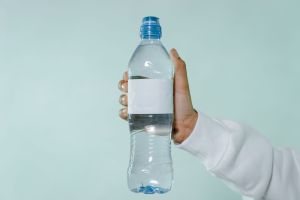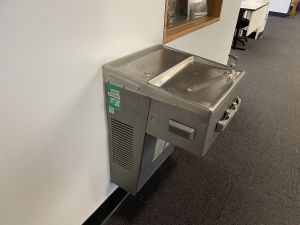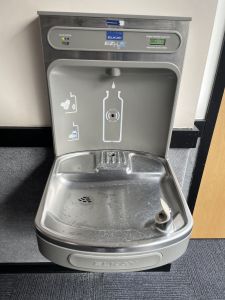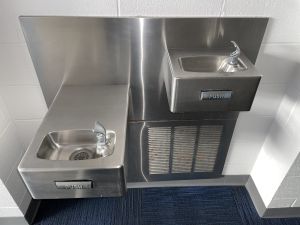
One million plastic bottles are bought per minute.
I’d like to think of myself as a water connoisseur. Drinking water is one of my favorite pastimes. However, where do I draw the line when it comes to protecting the environment? Honestly, it’s hard to think about the environment when papers and assignments cloud my mind.
Maybe I’m lazy, and don’t want a crisis of consciousness every time I reach for a sip of water. Or maybe, I’m spoiled that water is so easily found and packaged.
Coming to Cabrini, I’ve never imagined, in a singular plastic bottle per minute, I would be writing a water story. Although water is not the most exciting piece of journalistic writing, the weight of consequence of using plastic water bottles is greater than holding onto my standards and expectations.
Water is important.
According to Beyond Plastics, an anti-plastics movement involving environmental policy experts and college students, “15+ million metric tons of plastic enter our oceans every year and there will be 1 lb of plastic in the oceans for every 3 lbs of fish by 2025.”
As an independent adult, I must consider all the purchases I make, the decisions regarding my health and all the responsibilities that come with being an adult.
Water intake falls under those responsibilities. Plastic or reusable? Tap or filtered? Some prefer tap over bottled. Personally, I don’t love the taste of tap water. College life makes it tough.

In my experience, getting water at college has been a hassle. I live on campus, and in my almost two years staying in the dorms at Cabrini, I have yet to see a water fountain inside them. And I’m not talking about the old or unfriendly kind that are germ-ridden. I’m talking about the nice, filtered ones that are rare on campus.
I’m paying a lot of money to stay on campus at Cabrini, so why is it so hard to get on-demand water that is environmentally friendly? Faculty members have water coolers, why can’t students? Dorms on campus should have contact-free water filling stations.

Unfortunately, I fall victim to the plastic water bottle phenomenon. Sure, there are options like Brita or other filtering devices that can be hooked up onto faucets, but why should I filter my water when plastic ones are readily available for the taking?
If it’s recommended that I use a reusable water bottle, why do the dorms and stores on campus have vending machines or fridges with plastic water bottles? I’m not going to solely rely on the only two nice fountains located in the Holy Spirit Library and Founders.
I admit plastic water bottles are horrible for the environment, especially when they are not recycled. Why do I contribute to this? Convenience and my delusional water connoisseur dreams.
One of my goals in the new year is to use my reusable water bottle more often despite the hassle. However, all I feel like doing is drinking my favorite brand of water while watching my favorite television show curled up under my warm blanket.
Cabrini does offer a variety of safe and clean water options. Every academic and recreational building has at least one water fountain on each level. Anywhere there is food on campus, there is almost always water in the form of plastic bottles or disposable cups. Every dorm has a sink readily available for Brita use.

I see people on campus with both reusable and disposable water options. I applaud those protecting the environment with reusable water bottles.
Cabrini, in my opinion, should move towards a plastic bottle-free and water-friendly campus with more accessible and clean water fountains for all students and faculty.
Plus, isn’t it recommended that we have a daily intake of 8 cups of water? So, Cabrini, help us water up – in a way that is safe for us and the environment.




